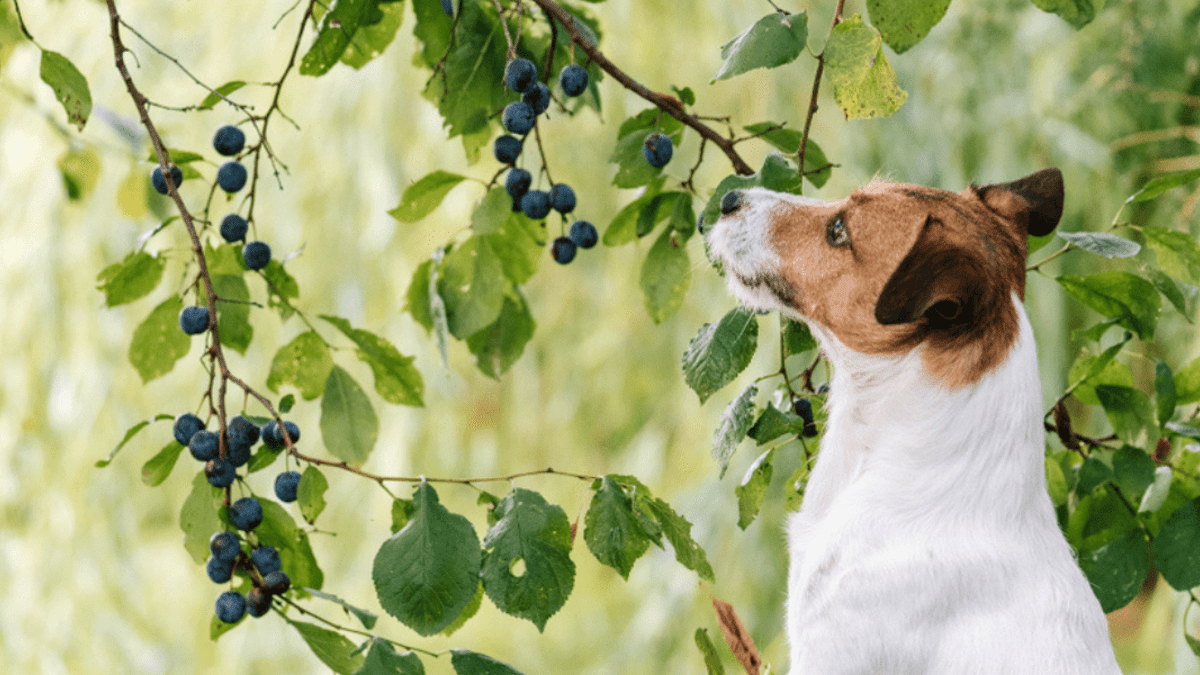Our four-legged friends often get enticed to admire our laden tables. They observe with their charitable eyes the delicacies that pass on our plates, imploring their sharing, and we think “it’s just a fruit, what harm can it do him?”.
What may seem like a gesture of affection must be weighed, however, with judgment: our eating habits do not always overlap with those of our animals.
These gastronomic discrepancies can also be very dangerous for Fido and that is why it is always good to inquire: so let’s find out if dogs can eat plums.
Can Dogs Eat Plums?
Yupdogs can eat plums, but remember that in the case of stone fruits, such as
The administration must be carried out with caution by the owner: in fact plums do not represent a danger to our dog, but the stone does.
In addition, plums also contain fibers and sugars that must not exceed a certain amount and should always be administered in moderation.
Nutritional properties
Plums contain 42 kcal/100gare moisturizing and perfect as a refreshing fruit, plus they are rich in minerals and vitamins useful for Fido’s body, in particular:
- Vit A, for bones, eyesight and the immune system
- Vit K, for proper blood clotting
- Vit C to strengthen the immune system
- Iron, Copper, Potassium
Are plums good for dogs?
Despite the beneficial properties that the dog can benefit from this fruit, plums are also quite sugaryto always be administered in moderation or also to be avoided in the case of subjects with particular pathologies such as diabetes mellitus.
Furthermore this fruit is used as a natural remedy for constipation in humans and the same principle applies to dogs.
We therefore avoid excessive administration if we do not want to obtain the opposite effect and risk causing unwanted diarrhea.
How to give plums to your dog safely?
Before giving a dog a plum it is good to know that:
- the core must always be removed, as it is potentially dangerous for the dog;
- fruit and vegetables must always be carefully washed, especially if not grown in the garden because they may contain residues of potentially toxic substances;
- always moderate the quantity to avoid unpleasant side effects.
Why is the stone of plums dangerous?
The hard heart of some fruits such as plums, holds a potential danger for both humans and animals: the cyanide. Each kernel contains approximately 0.4 mg of assimilable and metabolizable cyanide only if chewed (amygdalin).
The quantities are therefore very low because there is the risk of poisoning in the dog, far from normal: just think that in humans the lethal dose corresponds to the chewing of 30 kernels! In fact, we must be careful as our four-legged friends are famous for their voracity.
What happens if a dog swallows a whole plum stone?
In toxicological terms we said that it is quite unlikely that a dog can ingest and chew a large amount of nuts.
From the point of mechanically, however, the situation is different: the journey of a whole core it is already traumatic in itself for the epithelia of the esophagus, stomach and intestine, but it is even more so if it gets stuck on the way down.
This could cause asphyxiation, intestinal obstruction and gastrointestinal bleeding.
There are eating disorders such as pica that could lead to these clinical occurrences with a high incidence.
Can Dogs Eat Prunes?
Give the dog prunes it’s not a good idea. Fruit in general is appreciated by animals as it entices their sugary component which by definition is to be limited in dogs.
Following fruit dehydration the sugar content is multiplied becoming real sweets.
For this reason, taking prunes or similar could cause emetic and diarrheal episodes (vomiting and diarrhea) in the dog. We are talking about a full-blown symptomatology but of short duration in case of moderate ingestion. The ideal? Don’t give your dog prunes.
What are toxic foods for dogs?
The toxic foods for dogs that usually populate our pantries are many and very often the owners are very informed about it.
These include:
These are some examples, but the list is actually longer and more complex.
Rewarding Fido with some snacks is a gesture of affection that he will certainly appreciate, but it is important to know how to always ask yourself if the food we eat can be good for or harm Fido.
After all, we are the “parents” of our four-legged friends and it is our job to better manage their health, making sure to leave space to exacerbate their natural ethological instinct while protecting them at the same time.

